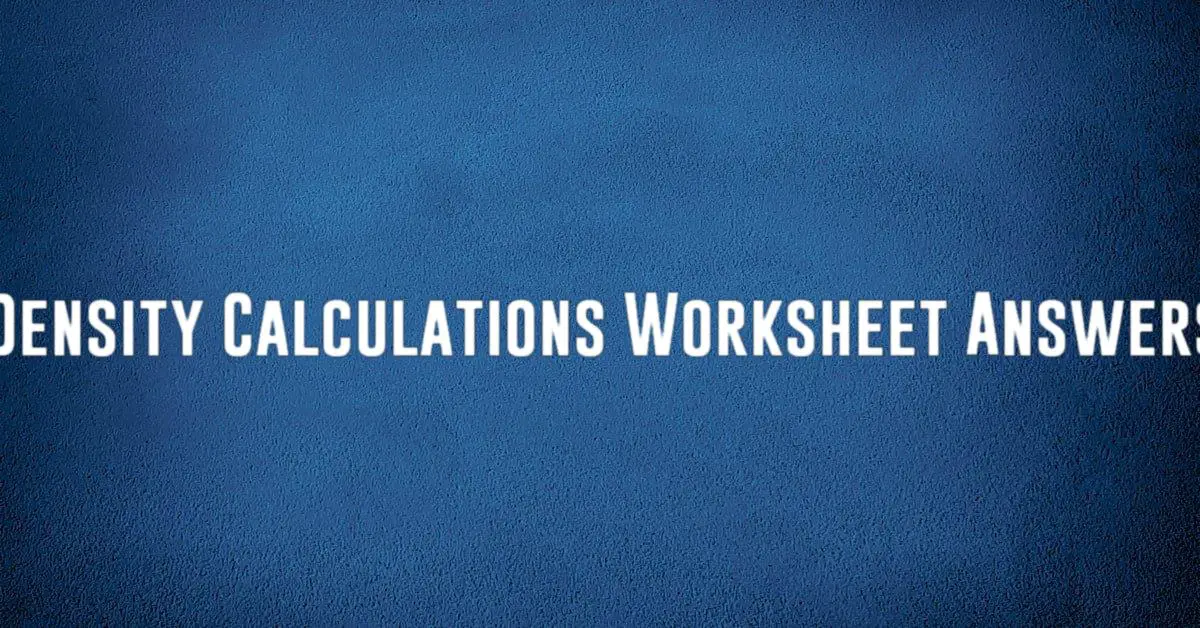Density Calculations Worksheet
In science, density is a measure of how much mass is contained in a given volume. It is an important concept in physics and chemistry, and is often used to identify substances or determine the purity of a sample. Density calculations involve simple mathematical formulas that can be used to solve a variety of problems related to mass and volume. This worksheet will provide practice problems to help students understand and apply the concept of density.
What is Density?
Density is defined as the mass of an object divided by its volume. In other words, it is a measure of how tightly packed the particles in a substance are. An object with a high density has a large mass in a small volume, while an object with a low density has a small mass in a large volume. Density is typically measured in units such as grams per cubic centimeter (g/cm³) or kilograms per liter (kg/L).

Calculating Density
The formula for calculating density is:
Density = Mass / Volume
This formula can be rearranged to solve for mass or volume, depending on what information is given. For example, if you know the mass and volume of an object, you can calculate its density by dividing the mass by the volume. Similarly, if you know the density and volume of an object, you can calculate its mass by multiplying the density by the volume.
Practice Problems
Now let’s practice calculating density with some example problems:
- If a block of wood has a mass of 50 grams and a volume of 25 cubic centimeters, what is its density?
- If a sample of metal has a density of 8 g/cm³ and a volume of 100 cubic centimeters, what is its mass?
- A piece of glass has a mass of 75 grams and a density of 2.5 g/cm³. What is its volume?
By using the formula Density = Mass / Volume, you can solve each of these problems step by step. Remember to pay attention to the units of measurement and make sure they are consistent throughout the calculation.
Applications of Density
Density is a fundamental concept in science and is used in a variety of real-world applications. For example, in chemistry, density is used to identify substances based on their unique physical properties. By measuring the density of a sample and comparing it to a known value, scientists can determine the composition and purity of a material.
In physics, density is used to study the behavior of fluids and gases. The density of a fluid determines its buoyancy and ability to float or sink in another fluid. Objects with a density greater than the fluid they are in will sink, while objects with a density less than the fluid will float.
Conclusion
In conclusion, density calculations are an essential skill in science and can be applied to a wide range of problems. By understanding the concept of density and how to calculate it, students can better analyze and interpret data in the lab or in everyday life. Practice problems like the ones provided in this worksheet can help reinforce this knowledge and enhance problem-solving skills.






